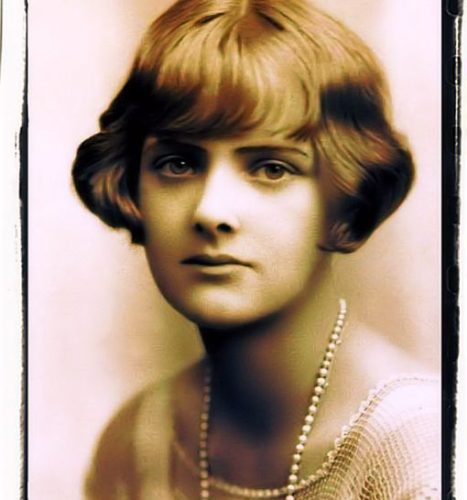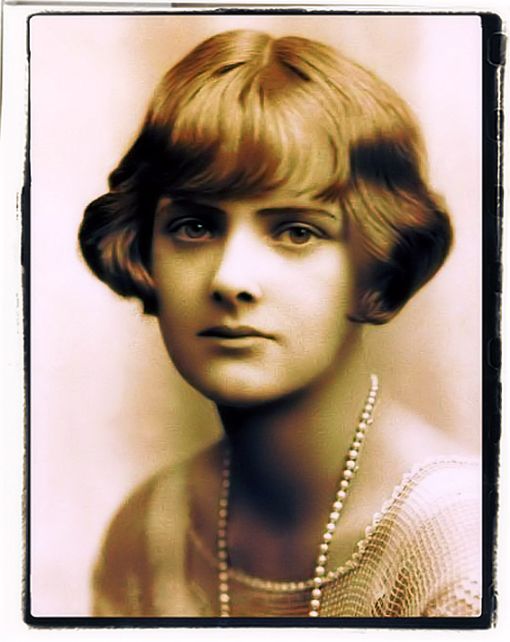
The Old Man a short story by the English novelist and playwright Daphne Du Maurier. Well known for Hitchcock film the Birds, another of her short stories.
Imagination is a form of seeing
Philip Pullman
Stories entertain and teach; they help us to enjoy life and also to endure it. After nourishment, shelter and companionship, stories are the thing we need most in the world.
Philip Pullman
Stories are the most important thing in the world. Without stories, we wouldn’t be human beings at all.
Philip Pullman
Dame Daphne du Maurier, Lady Browning, (13 May 1907 – 19 April 1989) was an English novelist and playwright, daughter of actor-manager Sir Gerald du Maurier and stage actress Muriel Beaumont. Her grandfather was writer and cartoonist George du Maurier. She is best known for her novel Rebecca (1938) which has been adapted for both stage and screen several times, most notably by Alfred Hitchcock in his 1940 film Rebecca. Several of du Maurier’s other novels have also been adapted for the screen, including Jamaica Inn, Frenchman’s Creek, Hungry Hill, and My Cousin Rachel.
The Hitchcock film The Birds (1963) is based on a treatment of the short story of that name, as is the film Don’t Look Now (1973). His first novel, The loving Spirit, was published in 1931 and it was followed by many successful, usually romantic tales set on the wild coast of Cornwall, where she came to live. She also wrote historical fiction, several plays, and Vanishing Cornwall (1967), a travel guide, and the short stories The Birds and Don’t Look Now/Not After Midnight. Du Maurier was made a Dame Commander in the Order of the British Empire in 1969. She published an autobiography, Growing Pains, in 1977; the collection The Rendezvous and Other Stories in 1980; and a literary reminiscence, The Rebecca Notebook and Other Memories, in 1981.
Although she is classed as a romantic novelist, her stories have been described as “moody and resonant” with overtones of the paranormal. Her bestselling works were not at first taken seriously by critics, but have since earned an enduring reputation for narrative craft. Many have been successfully adapted into films, including the novels Rebecca, Frenchman’s Creek, My Cousin Rachel, and Jamaica Inn, and the short stories The Birds and Don’t Look Now/Not After Midnight.
Du Maurier spent much of her life in Cornwall, where most of her works are set. As her fame increased, she became more reclusive. Du Maurier married Major (later Lieutenant-General) Frederick “Boy” Browning in 1932. They had three children. After her death in 1989, writers began spreading stories about her alleged relationships with various people, including actress Gertrude Lawrence, as well as her supposed attraction to Ellen Doubleday, the wife of her U.S. publisher Nelson Doubleday. Du Maurier stated in her memoirs that her father had wanted a son; being a tomboy, she wished to have been born a boy.
The story of the Old man begins with an unnamed narrator hooking us into the tale as if we were a curious tourist or visitor to this undisclosed place. The old man of the story seems an aloof figure sharing his life and time with a subservient wife by a lakeside “devoted to one another.” And this throwaway phrase holds the key to the story. For what does such devotion mean for their relationship and their relationship with others?
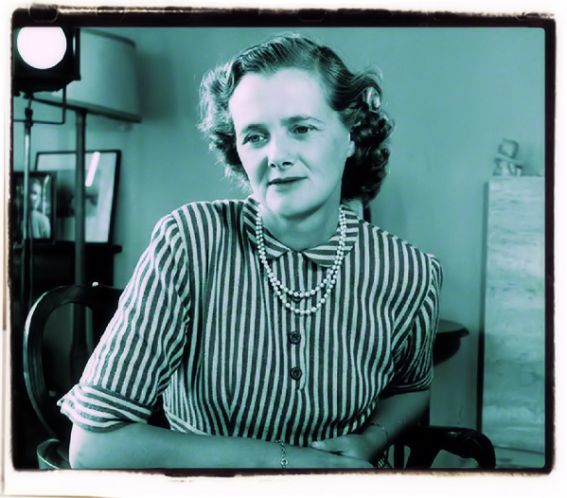
Daphne dur Maurier wrote this story using obscure and ambiguous writings. He made this kind of way of writing to make it interesting and satisfying reading. And the story is revealed by the time Boy and Tiny shows their characteristics. Her way of writing uses such things as ambiguity, but she mainly describes the old man. This old man is the main point of the narrator’s observations. The narrator lets the reader know the Old Man’s character by also describing his family. His family was made of 4 more characters, but the contrast between Boy and Tiny made the Old man’s character more evident.
Both, Tiny and Boy’s attitudes and personalities portrayed the Old Man’s character. His character starts to be seen as the narrator described Boy’s and Tiny’s actions. Old man was the tough, serious head of the family, while these two where opposite branches in the family. He had some serious rejection towards Boy because “… He had none of his father’s looks, or strength, or personality.” The clumsiness and stupidity of Boy “…Irritated him”. This built up such friction between Boy and his father that he ended up being murdered by him. The Old Man was a man of strong character, will, and personality; so he liked people like himself. For this reason, Tiny pleased him so much more than her brother. She had her individuality and personality that caused the Old Man to smile. The old man, indeed was tough toward Boy and soft towards Tiny.
The youngest girl in the family, Tiny, was rather a unique and cute character. She loved attention as well as giving others attention. For example, when they went out fishing all together “… she’d be eager to help, close to her dad.” She was a hyper active, happy girl, and the old man enjoyed that kind of personality. Unlike her oldest brother who was slow and wasn’t eager to help, the old man treated her well, and it is clear he had more affection for her. Probably the reason why he treated her better was because she was quick and cunning like him, and her way of being softened the Old Man’s heart.
All in all, Tiny and Boy were completely different beings. The only thing they shared was their blood, but nothing else, not even their father treated them the same. His reaction toward both really showed his character. The narrator described the events and people are able to see this contrast. Daphne gave mystery and interest by giving the characters such personalities, and even distinguishes them as “foils”. This all took part to catch the reader’s attention to want to know who the Old Man was.
The Old Man
Did I hear you asking about the Old Man? I thought so. You’re a newcomer to the district, here on holiday. We get plenty these days, during the summer months. Somehow they always find their way eventually over the cliffs down to this beach, and then they pause and look from the sea back to the lake. Just as you did. It’s a lovely spot, isn’t it? Quiet and remote. You can’t wonder at the old man choosing to live here. I don’t remember when he first came. Nobody can. Many years ago, it must have been. He was here when I arrived, long before the war. Perhaps he came to escape from civilization, much as I did myself. Or maybe, where he lived before, the folks around made things too hot for him. It’s hard to say. I had the feeling, from the very first, that he had done something, or something had been done to him, that gave him a grudge against the world.
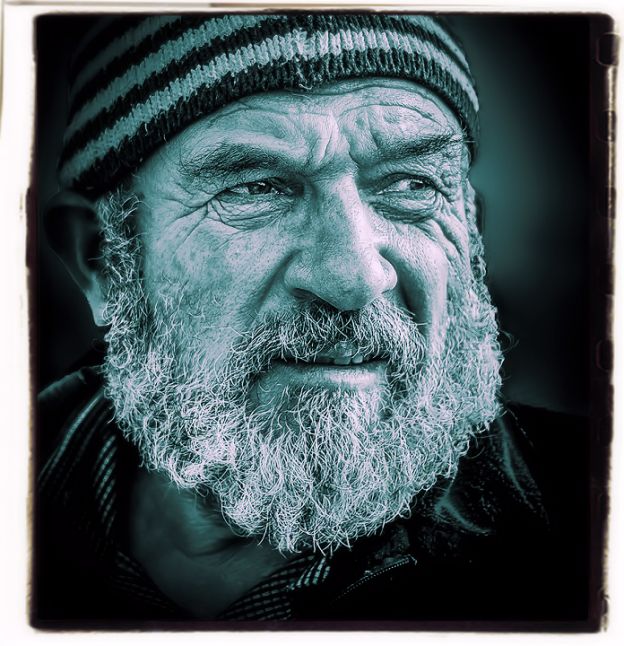
I remember the first time I set eyes on him I said to myself, “I bet that old fellow is one hell of a character.” Yes, he was living here beside the lake, along of his missus. Funny sort of lash-up they had, exposed to all the weather, but they didn’t seem to mind. I had been warned about him by one of the fellows from the farm, who advised me, with a grin, to give the old man who lived down by the lake a wide berth – he didn’t care for strangers. So I went warily, and I didn’t stay to pass the time of day. Nor would it have been any use if I had, not knowing a word of his lingo. The first time I saw him he was standing by the edge of the lake, looking out to sea, and from tact I avoided the piece of planking over the stream, which meant passing close to him, and crossed to the other side of the lake by the beach instead. Then, with an awkward feeling that I was trespassing and had no business to be there, I bobbed down behind a clump of gorse, took out my spy-glass, and had a peep at him.
He was a big fellow, broad and strong – he’s aged, of course, lately; I’m speaking of several years back .- but even now you can see what he must have been once. Such power and drive behind him, and that fine head, which he carried like a king. There’s an idea in that, too. No, I’m not joking. Who knows what royal blood he carries inside him, harking back to some remote ancestor? And now and again, surging in him – not through his own fault – it gets the better of him and drives him fighting mad. I didn’t think about that at the time. I just looked at him, and ducked behind the gorse when I saw him turn, and I wondered to myself what went on in his mind, whether he knew I was there, watching him.
If he should decide to come up the lake after me I should look pretty foolish. He must have thought better of it, though, or perhaps he did not care. He went on staring out to sea, watching the gulls and the incoming tide, and presently he ambled off his side of the lake, heading for the missus and home and maybe supper.
I didn’t catch a glimpse of her that first day. She just wasn’t around. Living as they do, close in by the left bank of the lake, with no proper track to the place, I hardly had the nerve to venture close and come upon her face to face. When I did see her, though, I was disappointed. She wasn’t much to look at after all. What I mean is, she hadn’t got anything like his character. A placid, mild-tempered creature, I judged her.
They had both come back from fishing when I saw them, and were making their way up from the beach to the lake. He was in front, of course. She tagged along behind. Neither of them took the slightest notice of me, and I was glad, because the old man might have paused, and waited, and told her to get on back home, and then come down towards the rocks where I was sitting. You ask what I would have said, had he done so? I’m damned if I know. Maybe I would have got up, whistling and seeming unconcerned, and then, with a nod and a smile – useless, really, but instinctive, if you know what I mean – said good day and pottered off. I don’t think he would have done anything. He’d just have stared after me, with those strange narrow eyes of his, and let me go.
After that, winter and summer, I was always down on the beach or the rocks, and they went on living their curious, remote existence, sometimes fishing in the lake, sometimes at sea. Occasionally I’d come across them in the harbour on the estuary, taking a look at the yachts anchored there, and the shipping. I used to wonder which of them made the suggestion. Perhaps suddenly he would be lured by the thought of the bustle and life of the harbour, and all the things he had either wantonly given up or never known, and he would say to her, ‘Today we are going into town.’ And she, happy to do whatever pleased him best, followed along.
You see, one thing that stood out – and you couldn’t help noticing it – was that the pair of them were devoted to one another. I’ve seen her greet him when he came back from a day’s fishing and had left her back home, and towards evening she’d come down the lake and on to the beach and down to the sea to wait for him. She’d see him coming from a long way off, and I would see him too, rounding the corner of the bay. He’d come straight in to the beach, and she would go to meet him, and they would embrace each other, not caring a damn who saw them. It was touching, if you know what I mean. You felt there was something lovable about the old man, if that’s how things were between them. He might be a devil to outsiders, but he was all the world to her. It gave me a warm feeling for him, when I saw them together like that.

You asked if they had any family? I was coming to that. It’s about the family I really wanted to tell you. Because there was a tragedy, you see. And nobody knows anything about it except me. I suppose I could have told someone, but if I had, I don’t know… They might have taken the old man away, and she’d have broken her heart without him, and anyway, when all’s said and done, it wasn’t my business. I know the evidence against the old man was strong, but I hadn’t positive proof, it might have been some sort of accident, and anyway, nobody made any inquiries at the time the boy disappeared, so who was I to turn busybody and informer?
I’ll try and explain what happened. But you must understand that all this took place over quite a time, and sometimes 1 was away from home or busy, and didn’t go near the lake. Nobody seemed to take any interest in the couple living there but myself, so that it was only what I observed with my own eyes that makes this story, nothing that I heard from anybody else, no scraps of gossip, or tales told about them behind their backs.
Yes, they weren’t always alone, as they are now. They had four kids. Three girls and a boy. They brought up the four of them in that ramshackle old place by the lake, and it was always a wonder to me how they did it. God, I’ve known days when the rain lashed the lake into little waves that burst and broke on the muddy shore near by their place, and turned the marsh into a swamp, and the wind driving straight in. You’d have thought anyone with a grain of sense would have taken his missus and his kids out of it and gone off somewhere where they could get some creature comforts at least. Not the old man. If he could stick it, I guess he decided she could too, and the kids as well. Maybe he wanted to bring them up the hard way.
Mark you, they were attractive youngsters. Especially the youngest girl. I never knew her name, but I called her Tiny, she had so much go to her. Chip off the old block, in spite of her size. I can see her now, as a little thing, the first to venture paddling in the lake, on a fine morning, way ahead of her sisters and the brother.
The brother I nicknamed Boy. He was the eldest, and between you and me a bit of a fool. He hadn’t the looks of his sisters and was a clumsy sort of fellow. The girls would play around on their own, and go fishing, and he’d hang about in the background, not knowing what to do with himself. If he possibly could he’d stay around home, near his mother. Proper mother’s boy. That’s why I gave him the name. Not that she seemed to fuss over him any more than she did the others. She treated the four alike, as far as I could tell. Her thoughts were always for the old man rather than for them. But Boy was just a great baby, and I have an idea he was simple.
Like the parents, the youngsters kept themselves to themselves. Been dinned into them, I dare say, by the old man. They never came down to the beach on their own and played; and it Must have been a temptation, I thought, in full summer, when people came walking over the cliffs down to the beach to bathe and picnic. I suppose, for those strange reasons best known to himself, the old man had warned them to have no truck with strangers.
They were used to me pottering, day in, day out, fetching driftwood and that. And often I would pause and watch the kids playing by the lake. I didn’t talk to them, though. They might have gone back and told the old man. They used to look up when 1 passed by, then glance away again, sort of shy. All but Tiny. Tiny would toss her head and do a somersault, just to show off.
I sometimes watched them go off, the six of them – the old man, the missus, Boy, and the three girls, for a day’s fishing out to sea. The old man, of course, in charge; Tiny eager to help, close to her dad; the missus looking about her to see if the weather was going to keep fine; the two other girls alongside; and Boy, poor simple Boy, always the last to leave home. I never knew what sport they had. They used to stay out late, and I’d have left the beach by the time they came back again. But I guess they did well. They must have lived almost entirely on what they caught. Well, fish is said to be full of vitamins, isn’t it? Perhaps the old man was a food faddist in his way.
Time passed, and the youngsters began to grow up. Tiny lost something of her individuality then, it seemed to me. She grew more like her sisters. They were a nice-looking trio, all the same. Quiet, you know, well-behaved.
As for Boy, he was enormous. Almost as big as the old man, but with what a difference! He had none of his father’s looks, or strength, or personality; he was nothing but a great clumsy lout. And the trouble was, I believe the old man was ashamed of him. He didn’t pull his weight in the home, I’m certain of that. And out fishing he was perfectly useless. The girls would work away like beetles, with Boy, always in the background, making a mess of things. If his mother was there he just stayed by her side.
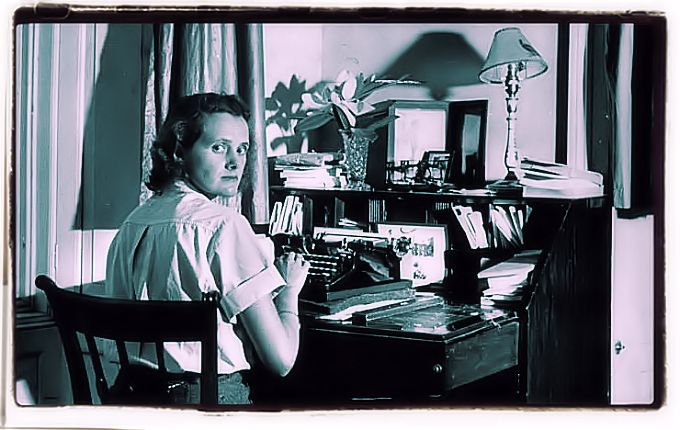
I could see it rattled the old man to have such an oaf of a son. Irritated him, too, because Boy was so big. It probably didn’t make sense to his intolerant mind. Strength and stupidity didn’t go together. In any normal family, of course, Boy would have left home by now and gone out to work. I used to wonder if they argued about it back in the evenings, the missus and the old man, or if it was something never admitted between them but tacitly understood – Boy was no good. Well, they did leave home at last. At least, the girls did. I’ll tell you how it happened.
It was a day in late autumn, and I happened to be over doing some shopping in the little town overlooking the harbour, three miles from this place, and suddenly I saw the old man, the missus, the three girls and Boy all making their way up to Pont – that’s at the head of a creek going eastward from the harbour. There are a few cottages at Pont, and a farm and a church up behind. The family looked washed and spruced up, and so did the old man and the missus, and I wondered if they were going visiting. If they were, it was an unusual thing for them to do. But it’s possible they had friends or acquaintances up there, of whom I knew nothing. Anyway, that was the last I saw of them, on the fine Saturday afternoon, making for Pont.
It blew hard over the week-end, a proper easterly gale. I kept indoors and didn’t go out at all. I knew the seas would be breaking good and hard on the beach. I wondered if the old man and the family had been able to get back. They would have been wise to stay with their friends up Pont, if they had friends there.
It was Tuesday before the wind dropped and I went down to the beach again. Seaweed, driftwood, tar and oil all over the place. It’s always the same after an easterly blow. I looked up the lake, towards the old man’s shack, and I saw him there, with the missus, just by the edge of the lake. But there was no sign of the youngsters.
I thought it a bit funny, and waited around in case they should appear. They never did. I walked right round the lake, and from the opposite bank I had a good view of their place, and even took out my old spy-glass to have a closer look. They just weren’t there. The old man was pottering about as he often did when he wasn’t fishing, and the missus had settled herself down to bask in the sun. There was only one explanation. They had left the family with friends in Pont. They had sent the family for a holiday.
I can’t help admitting I was relieved, because for one frightful moment I thought maybe they had started off back home on the Saturday night and got struck by the gale; and, well – that the old man and his missus had got back safely, but not the kids. It couldn’t be that, though. I should have heard. Someone would have said something. The old man wouldn’t be pottering there in his usual unconcerned fashion and the missus basking in the sun. No, that must have been it. They had left the family with friends. Or maybe the girls and Boy had gone up country, gone to find themselves jobs at last.
Somehow it left a gap. I felt sad. So long now I had been used to seeing them all around, Tiny and the others. I had a strange sort of feeling that they had gone for good. Silly, wasn’t it ? To mind, I mean. There was the old man, and his missus, and the four youngsters, and I’d more or less watched them grow up, and now for no reason they had gone.
I wished then I knew even a word or two of his language, so that I could have called out to him, neighbour-like, and said, “I see you and the missus are on your own. Nothing wrong, I hope ?”
But there, it wasn’t any use. He’d have looked at me with his strange eyes and told me to go to hell.
I never saw the girls again. No, never. They just didn’t come back. Once I thought I saw Tiny, somewhere up the estuary, with a group of friends, but I couldn’t be sure. If it was, she’d grown, she looked different. I tell you what I think. I think the old man and the missus took them with a definite end in view, that last week-end, and either settled them with friends they knew or told them to shift for themselves.
I know it sounds hard, not what you’d do for your own son and daughters, but you have to remember the old man was a tough customer, a law unto himself. No doubt he thought it would be for the best, and so it probably was, and if only I could know for certain what happened to the girls, especially Tiny, I wouldn’t worry.
But I do worry sometimes, because of what happened to Boy.
You see, Boy was fool enough to come back. He came back about three weeks after that final week-end. I had walked down through the woods – not my usual way, but down to the lake by the stream that feeds it from a higher level. I rounded the lake by the marshes to the north, some distance from the old man’s place, and the first thing I saw was Boy.
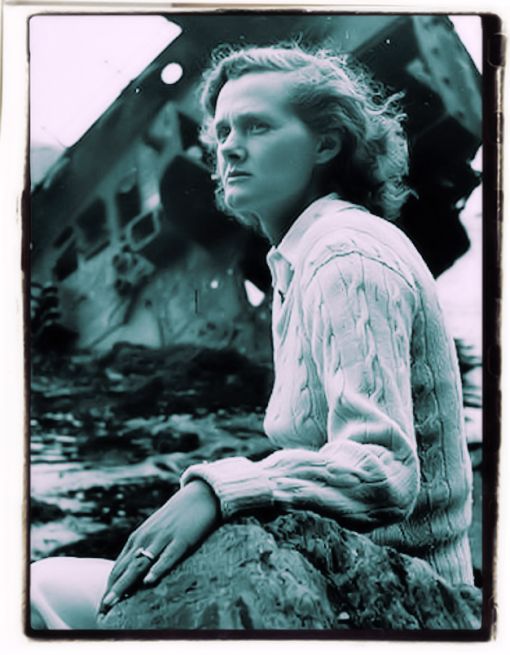
He wasn’t doing anything. He was just standing by the marsh. He looked dazed. He was too far off for me to hail him; besides, I didn’t have the nerve. But I watched him, as he stood there in his clumsy loutish way, and I saw him staring at the far end of the lake. He was staring in the direction of the old man.
The old man, and the missus with him, took not the slightest notice of Boy. They were close to the beach, by the plank bridge, and were either just going out to fish or coming back. And here was Boy, with his dazed stupid face, but not only stupid -frightened.
I wanted to say, “Is anything the matter ?” but I didn’t know how to say it. I stood there, like Boy, staring at the old man.
Then what we both must have feared would happen, happened.
The old man lifted his head, and saw Boy.
He must have said a word to his missus, because she didn’t move, she stayed where she was, by the bridge, but the old man turned like a flash of lightning and came down the other side of the lake towards the marshes, towards Boy. He looked terrible. I shall never forget his appearance. That magnificent head I had always admired now angry, evil; and he was cursing Boy as he came. I tell you, I heard him.
Boy, bewildered, scared, looked hopelessly about him for cover. There was none. Only the thin reeds that grew beside the marsh. But the poor fellow was so dumb he went in there, and crouched, and believed himself safe – it was a horrible sight.
I was just getting my own courage up to interfere when the old man stopped suddenly in his tracks, pulled up short as it were, and then, still cursing, muttering, turned back again and returned to the bridge. Boy watched him, from his cover of reeds, then, poor clot that he was, came out on to the marsh again, with some idea, I suppose, of striking for home.
I looked about me. There was no one to call. No one to give any help. And if I went and tried to get someone from the farm they would tell me not to interfere, that the old man was best left alone when he got in one of his rages, and anyway that Boy was old enough to take care of himself. He was as big as the old man. He could give as good as he got. I knew different. Boy was no fighter. He didn’t know how.
I waited quite a time beside the lake but nothing happened.
It began to grow dark. It was no use my waiting there. The old man and the missus left the bridge and went on home. Boy was still standing there on the marsh, by the lake’s edge.
I called to him, softly. It’s no use. He won’t let you in. Go back to Pont, or wherever it is you’ve been. Go to some place, anywhere, but get out of here.’
He looked up, that same queer dazed expression on his face, and I could tell he hadn’t understood a word I said.
I felt powerless to do any more. I went home myself. But I thought about Boy all evening, and in the morning I went down to the lake again, and I took a great stick with me to give me courage. Not that it would have been much good. Not against the old man.
Well … I suppose they had come to some sort of agreement, during the night. There was Boy, by his mother’s side, and the old man was pottering on his own.
I must say, it was a great relief. Because, after all, what could I have said or done? If the old man didn’t want Boy home, it was really his affair. And if Boy was too stupid to go, that was Boy’s affair.
But I blamed the mother a good deal. After all, it was up to her to tell Boy he was in the way, and the old man was in one of his moods, and Boy had best get out while the going was good. But I never did think she had great intelligence. She did not seem to show much spirit at any time.
However, what arrangement they had come to worked for a time. Boy stuck close to his mother – I suppose he helped her at home, I don’t know – and the old man left them alone and was more and more by himself.
He took to sitting down by the bridge, humped, staring out to sea, with a queer brooding look on him. He seemed strange, and lonely. I didn’t like it. I don’t know what his thoughts were, but I’m sure they were evil. It suddenly seemed a very long time since he and the missus and the whole family had gone fishing, a happy, contented party. Now everything had changed for him. He was thrust out in the cold, and the missus and Boy stayed together.
I felt sorry for him, but I felt frightened too. Because I felt it could not go on like this indefinitely; something would happen.
One day I went down to the beach for driftwood – it had been blowing in the night – and when I glanced towards the lake I saw that Boy wasn’t with his mother. He was back where I had seen him that first day, on the edge of the marsh. He was as big as his father. If he’d known how to use his strength he’d have been a match for him any day, but he hadn’t the brains. There he was, back on the marsh, a great big frightened foolish fellow, and there was the old man, outside his home, staring down towards his son with murder in his eyes.
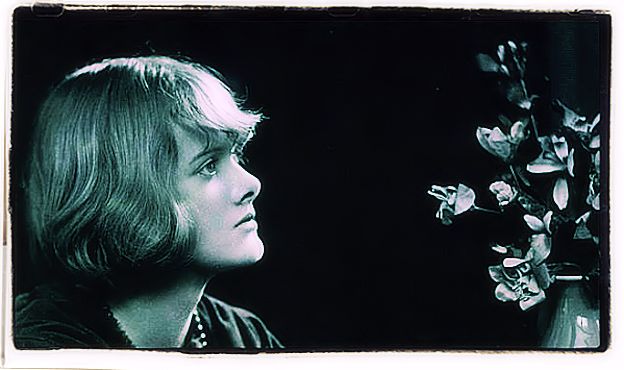
I said to myself, “He’s going to kill him.” But I didn’t know how or when or where, whether by night, when they were sleeping, or by day, when they were fishing. The mother was useless, she would not prevent it. It was no use appealing to the mother. If only Boy would use one little grain of sense, and go …
I watched and waited until nightfall. Nothing happened.
It rained in the night. It was grey, and cold, and dim. December was everywhere, trees all bare and bleak. I couldn’t get down to the lake until late afternoon, and then the skies had cleared and the sun was shining in that watery way it does in winter, a burst of it, just before setting below the sea.
I saw the old man, and the missus too. They were close together, by the old shack, and they saw me coming for they looked towards me. Boy wasn’t there. He wasn’t on the marsh, either. Nor by the side of the lake.
I crossed the bridge and went along the right bank of the lake, and I had my spy-glass with me, but I couldn’t see Boy. Yet all the time I was aware of the old man watching me.
Then I saw him. I scrambled down the bank, and crossed the marsh, and went to the thing I saw lying there, behind the reeds.
He was dead. There was a great gash on his body. Dried blood on his back. But he had lain there all night. His body was sodden with the rain.
Maybe you’ll think I’m a fool, but I began to cry, like an idiot, and I shouted across to the old man, “You murderer, you bloody God-damned murderer.” He did not answer. He did not move. He stood there, outside his shack with the missus, watching me.
You’ll want to know what I did. I went back and got a spade, and I dug a grave for Boy, in the reeds behind the marsh, and I said one of my own prayers for him, being uncertain of his religion. When I had finished I looked across the lake to the old man.
And do you know what I saw ?
I saw him lower his great head, and bend towards her and embrace her. And she lifted her head to him and embraced him too. It was both a requiem and a benediction. An atonement, and a giving of praise. In their strange way they knew they had done evil, but now it was over, because I had buried Boy and he was gone. They were free to be together again, and there was no longer a third to divide them.
They came out into the middle of the lake, and suddenly I saw the old man stretch his neck and beat his wings, and he took of from the water, full of power, and she followed him. I watched the two swans fly out to sea right into the face of the setting sun, and I tell you it was one of the most beautiful sights I ever saw in my life: the two swans flying there, alone, in winter.
If you like short stories you can also read:

